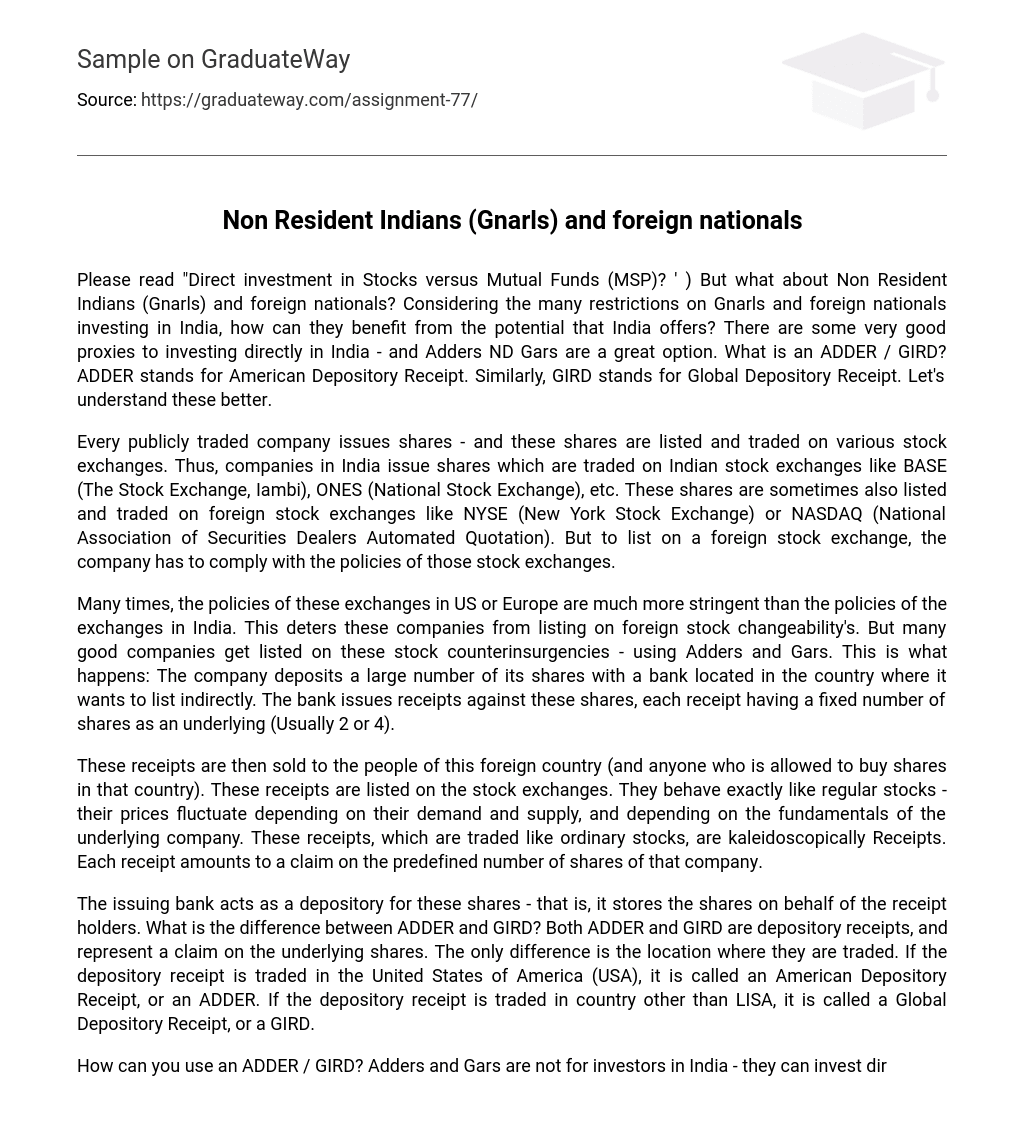Please read “Direct investment in Stocks versus Mutual Funds (MSP)? ‘ ) But what about Non Resident Indians (Gnarls) and foreign nationals? Considering the many restrictions on Gnarls and foreign nationals investing in India, how can they benefit from the potential that India offers? There are some very good proxies to investing directly in India – and Adders ND Gars are a great option. What is an ADDER / GIRD? ADDER stands for American Depository Receipt. Similarly, GIRD stands for Global Depository Receipt. Let’s understand these better.
Every publicly traded company issues shares – and these shares are listed and traded on various stock exchanges. Thus, companies in India issue shares which are traded on Indian stock exchanges like BASE (The Stock Exchange, Iambi), ONES (National Stock Exchange), etc. These shares are sometimes also listed and traded on foreign stock exchanges like NYSE (New York Stock Exchange) or NASDAQ (National Association of Securities Dealers Automated Quotation). But to list on a foreign stock exchange, the company has to comply with the policies of those stock exchanges.
Many times, the policies of these exchanges in US or Europe are much more stringent than the policies of the exchanges in India. This deters these companies from listing on foreign stock changeability’s. But many good companies get listed on these stock counterinsurgencies – using Adders and Gars. This is what happens: The company deposits a large number of its shares with a bank located in the country where it wants to list indirectly. The bank issues receipts against these shares, each receipt having a fixed number of shares as an underlying (Usually 2 or 4).
These receipts are then sold to the people of this foreign country (and anyone who is allowed to buy shares in that country). These receipts are listed on the stock exchanges. They behave exactly like regular stocks – their prices fluctuate depending on their demand and supply, and depending on the fundamentals of the underlying company. These receipts, which are traded like ordinary stocks, are kaleidoscopically Receipts. Each receipt amounts to a claim on the predefined number of shares of that company.
The issuing bank acts as a depository for these shares – that is, it stores the shares on behalf of the receipt holders. What is the difference between ADDER and GIRD? Both ADDER and GIRD are depository receipts, and represent a claim on the underlying shares. The only difference is the location where they are traded. If the depository receipt is traded in the United States of America (USA), it is called an American Depository Receipt, or an ADDER. If the depository receipt is traded in country other than LISA, it is called a Global Depository Receipt, or a GIRD.
How can you use an ADDER / GIRD? Adders and Gars are not for investors in India – they can invest directly in the shares of various Indian companies. But the Adders and Gars are an excellent means of investment for Norris and foreign nationals wanting to invest in India. By buying these, they can invest directly in Indian companies without going through the hassle of understanding the rules and working of the Indian financial market – since Adders and Gars are traded like any other stock, Gnarls and foreigners can u these using their regular equity trading accounts!





